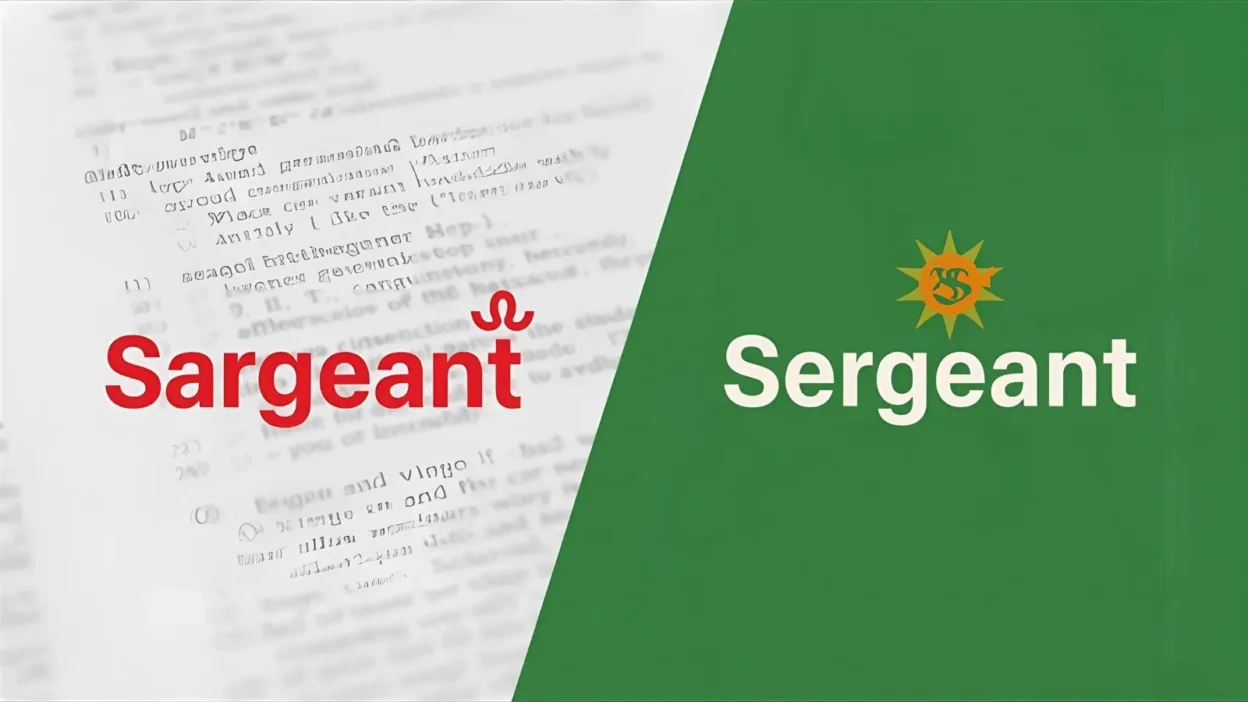If you write in English or are working on a professional document, email, or social media post, you might be confused about whether to use “Sergeant” or “Sargeant.”
We know you want your content to look completely correct, and even a small spelling mistake can make your professionalism questionable.
Let’s clear up this confusion in a simple way today, so you can write confidently and give your readers accurate information.
Sergeant or Sargeant – Quick Answer
The correct spelling is sergeant.
❌ Incorrect: sargeant
✅ Correct: sergeant
Example:
- Correct: He was promoted to sergeant in the army.
- Incorrect: She is a police sargeant.
The Origin of Sergeant or Sargeant
The word sergeant comes from the Old French word sergent, meaning “servant” or “attendant.” It entered Middle English in the 13th century, keeping the French-style spelling but with English pronunciation. Over time, the word kept its unusual spelling, even though the sound suggests a different form.
The “ge” in sergeant represents the “j” sound, which misleads many writers into adding an extra “a.” That’s why the misspelling sargeant is common but incorrect.
British English vs American English Spelling
Unlike other words (color/colour, organize/organise), sergeant is spelled the same in both British and American English. However, pronunciation sometimes differs slightly by region.
| Region | Correct Spelling | Common Mistake | Example Usage |
| US | Sergeant | Sargeant | Army Sergeant |
| UK | Sergeant | Sargeant | Police Sergeant |
| Canada | Sergeant | Sargeant | Royal Canadian Mounted Police Sergeant |
| Australia | Sergeant | Sargeant | Sergeant of Arms |
Which Spelling Should You Use?
- In the US: Always use sergeant.
- In the UK & Commonwealth: The correct spelling is also sergeant.
- In global writing: Stick with sergeant to avoid confusion.
If you’re writing for an international audience—academic, professional, or formal—sergeant is the only correct and accepted spelling.
Common Mistakes with Sergeant or Sargeant
- ❌ Writing sargeant in official titles.
- ❌ Mixing abbreviations (e.g., “Sgt.” spelled incorrectly as “Sargt.”).
- ❌ Adding unnecessary “a” letters because of phonetics.
- ❌ Assuming US vs UK spelling differences (they don’t exist here).
Correction tip: Always remember sergeant = correct, sargeant = error.
Sergeant or Sargeant in Everyday Examples
- Email: “Please contact Sergeant Miller for the case update.”
- News headline: “Sergeant honored for bravery in the line of duty.”
- Social media: “Big thanks to the sergeant who helped us today!”
- Formal writing: “The Sergeant at Arms announced the start of the session.”
Notice that sergeant works across formal and informal contexts.
Sergeant or Sargeant – Google Trends & Usage Data
Google Trends shows that sergeant is consistently more searched than sargeant worldwide. Countries like the US, UK, Canada, and Australia overwhelmingly use sergeant.
| Keyword | Popularity (Google) | Accepted Usage |
| Sergeant | Very High | ✅ Correct |
| Sargeant | Low | ❌ Incorrect |
This proves that sergeant dominates across English-speaking countries, both in military and civilian use.
FAQs
1. Is it ever correct to spell it “sargeant”?
No. “Sargeant” is always a misspelling.
2. Why does sergeant look different from how it sounds?
Because it kept its Old French spelling even though English pronunciation changed.
3. What is the abbreviation of sergeant?
It is written as Sgt. (never Sargt.).
4. Is “sergeant” capitalized?
Yes, when used as a title before a name (e.g., Sergeant Smith). Otherwise, it’s lowercase.
5. Do other military ranks have spelling confusion?
Yes. Words like “lieutenant” also confuse people due to historical spelling.
6. Is there a plural form of sergeant?
Yes. Sergeants is the plural form.
7. Does spelling change in police vs military?
No. Both use sergeant worldwide.
Conclusion
When it comes to sergeant or sargeant, the answer is simple: sergeant is the only correct spelling. The confusion exists because the word doesn’t look like it sounds, leading many to mistakenly add an “a.” However, dictionaries, style guides, and official military and police documents always use sergeant.
Whether you’re writing an email, a report, or a formal document, using the correct spelling shows attention to detail and professionalism. If you’re unsure, remember this quick rule: sergeant = correct, sargeant = wrong.
Stick with sergeant in all contexts—US, UK, or international writing—and you’ll always be right.

Nathaniel Gray is a talented writer at lingorae.com, known for his clever wit and engaging style.
A true master of puns, he crafts playful wordplay that entertains and delights readers.




